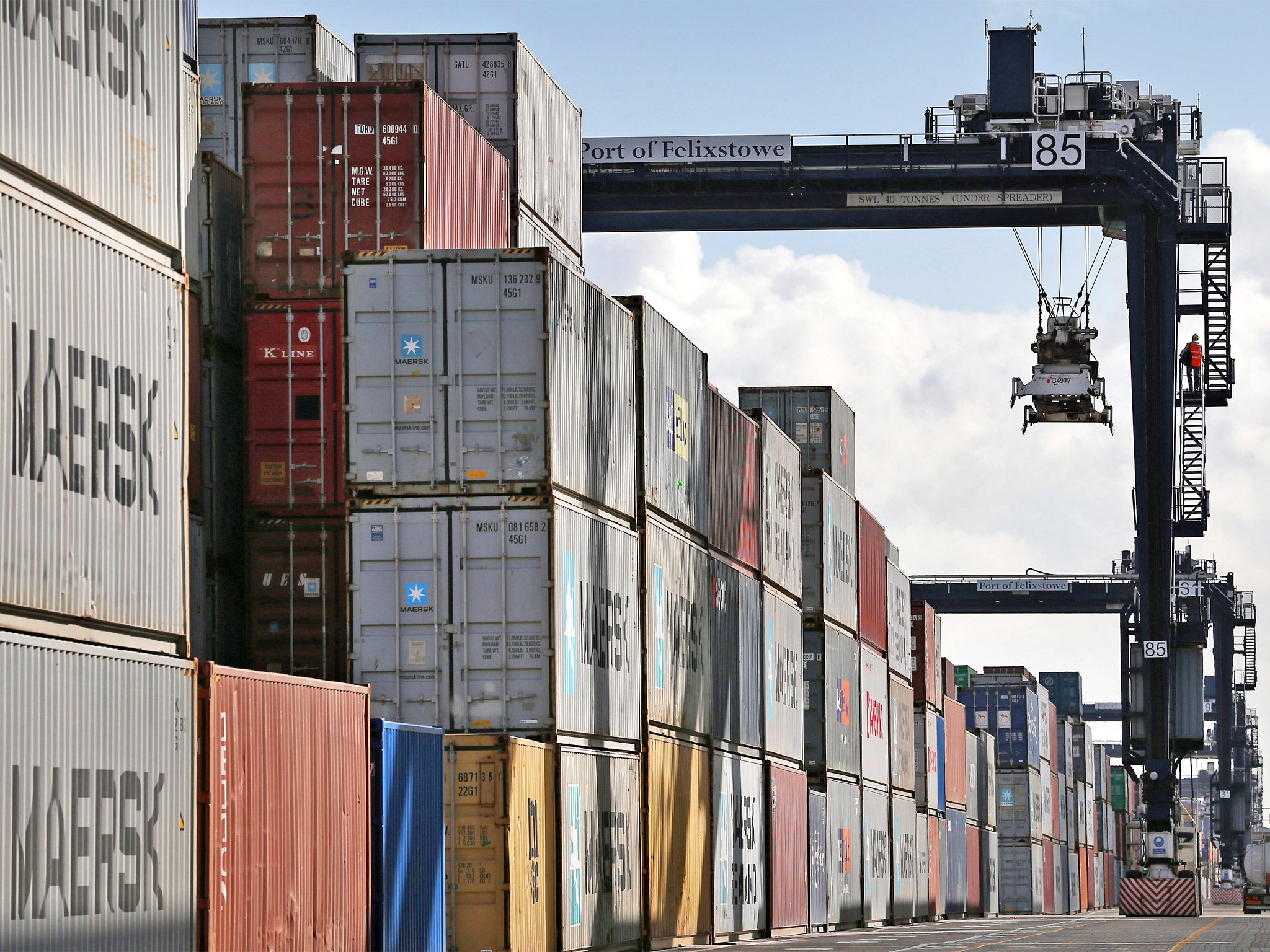Just how balanced is the UK economy?
The IMF is sounding a warning shot over Britain's economic recovery. Ben Chu examines how concerned we should be about prospects for growth

At first glance the International Monetary Fund's latest set of forecasts seem to reflect extraordinarily well on Britain. The IMF has revised up its growth estimates for the economy since January by a bigger margin than for any other advanced country. If it is correct, Britain will grow at a faster pace this year (2.9 per cent) than any other member of the G7 club.
But the IMF sounded a warning too. "The recovery [in the UK] has been unbalanced, with business investment and exports still disappointing," it said in its World Economic Outlook. It also noted a potential threat to stability posed by "surging" house prices.
So how "unbalanced" is our recovery? And just how worried should we be?
The IMF is by no means alone among analysts in harbouring concerns. In 2013 the economy grew 1.7 per cent, but as the first chart shows this was heavily dependent on output from our services firms. Construction made a contribution, but manufacturing was actually a small drag on growth over the 12 months. After widespread hopes in the wake of the Great Recession of a manufacturing renaissance – what George Osborne in 2011 called a "march of the makers" – the protracted weakness of the sector is depressing.
Breaking down GDP growth by expenditure demand in 2013 also gives some support to the concerns of lack of balance. Household consumption drove the bulk of total growth. Investment by businesses dragged on growth. Spending from abroad made a modest contribution, but the failure of exports to drive GDP has been one of the most disappointing aspects of the past four years. In 2010 the Office for Budget Responsibility (OBR) anticipated a mighty surge in exports but, in fact, as the second chart shows, overseas sales of British goods and services have gone sideways, thanks in large part to stagnation in the eurozone, our biggest single market.
It is the British consumer, after several years of retrenchment, who delivered the sharp recovery in GDP last year. But how? Household incomes, after accounting for inflation, fell. The Office for National Statistics (ONS) says additional consumption was financed by a cut in the aggregate savings ratio for households, down to 5 per cent last year.
A jump in house prices seems to have underpinned confidence. Average prices are now up 10 per cent year on year, helped by the Bank of England's Funding for Lending Scheme and the Chancellor's promise last year of state-backed mortgage subsidies. The household debt to income ratio has come down from its peak of 170 per cent of GDP in 2008 to about 140 per cent. But the OBR expects it to start rising again. By the end of the decade the forecaster thinks the ratio will be back to where it was at the beginning of the financial crisis, mainly thanks to people borrowing more to buy expensive homes.
Meanwhile, the current account deficit, which includes the trade deficit and income from investments abroad, last year hit its highest level as a share of GDP since the late 1980s. Pessimists wonder how sustainable this is. They fret that the recovery has a glass jaw and that an increase in base rate by the Bank of England could expose some over-stretched households and deliver a lethal blow to wider confidence.
But others prefer to accentuate the positive. Yesterday's manufacturing figures for February showed output growing for the third successive month. Business investment has grown over the four quarters. The breakdown of GDP in the final quarter of 2013 also showed a healthier pattern of expenditure, with net trade and investment providing the bulk of growth and consumers taking a back seat.
Optimists also point out the number of new housing starts in England in 2013 reached its highest level in five years, hailing this as a sign construction supply is finally beginning to respond to demand. A host of private surveys suggest a welcome increase in business investment and manufacturing is coming soon to facilitate the rebalancing.
Another complication is that the ONS said this week it would enact radical methodological revisions this autumn, which will move a lot of metrics. Among other things, the statisticians are expected to revise the savings ratio up sharply, possibly as high as 10 per cent. Some are predicting that the ONS will upgrade its judgement of investment and export growth in previous years. It is hard to make a judgement about an economy's balance when there is such uncertainty over what is actually taking place in it.
But interestingly, among those who have taken the concerns of imbalance seriously is the Chancellor. To coincide with "export week" Mr Osborne has outlined measures designed to help firms break into new foreign markets by offering additional trade finance support. Private banks will be able to use export loans as collateral at the Bank of England, which should make them more inclined to create such loans. The Chancellor is also putting pressure on businesses to invest.
He ignored the IMF this time last year when it warned him he was playing with fire by ploughing on with his schedule of fiscal consolidation while the economy still looked perilously weak. But he is paying more than lip service to the IMF's concerns about the British recovery's apparent lack of balance.
Subscribe to Independent Premium to bookmark this article
Want to bookmark your favourite articles and stories to read or reference later? Start your Independent Premium subscription today.

Join our commenting forum
Join thought-provoking conversations, follow other Independent readers and see their replies